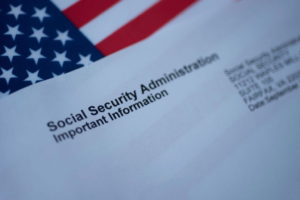
Medication Errors Can Add An Extra $2.8 Million In Costs Per Hospital
Mar 6, 2013
Little Rock, AR (Law Firm Newswire) March 5, 2013 – Hospital medication errors are rarely revealed to patients. Those errors affect more than just patients.
“A relatively new study is indicating that patients and their families are rarely, if ever, told about medication errors. Although most of the errors seemingly did not harm anyone, it is an ongoing problem in hospitals and even more mistakes are made in Intensive Care Units. What does this mean for patients who are so ill they can’t monitor their own medications? It means there is a greater likelihood of medical negligence resulting in serious harm or death,” added Michael Smith, an Arkansas injury lawyer and Arkansas accident lawyer, practicing personal injury law in Arkansas personal injury lawyer.
Evidently, the study results were not much of a surprise to researchers, who knew before conducting their surveys, where and how most medication errors transpired. What did surprise them however, was what was or was not done about the mistakes.
The study took into consideration close to 840,000 voluntarily reported medication errors in 537 hospitals across the nation. “The window of time examined was 1999 to 2005, and they found that about 6.6 percent of all medication errors took place in an ICU setting. That translated to about 56,000 errors. Scary. The rest of the errors were hospital wide, not unit specific,” said Smith.
Of the 56,000 ICU hospital medication errors, about 4 percent harmed a patient. Hospital wide, the harm was tabulated to be roughly 2 percent. It is not surprising that those in ICU are more vulnerable to sustain harm, or death, from a medication error, simply due to their fragility. “The nature of the mistakes in ICU revolved around nurses failing to give a patient their medication, dose miscalculations, and errors involving IV lines,” Smith explained.
The most shocking finding of the study was that in more than one half of the serious error cases, no action was taken; either with the staff member who made the mistake or the hospital telling the family members. This flies directly in the face of the most recent push for more transparency and accountability by medical personnel in the wake of medical negligence.
On an encouraging note, another recent study, similar in nature to this one, shows that blame-free reporting does up the number of reported mistakes, which could be good or bad, as lower numbers would then be indicative of under-reporting.
“It is not just the patient that experiences the results of medication errors. Hospital errors may add an extra $2.8 million to their operating costs. Consider lawsuits as the source of the extra expenses and any court ordered training or accountability programs to be implemented. Medication errors affect everyone. If you feel you have been the victim of a hospital error, contact me. I can advise you of your rights,” Smith said.
Learn more by contacting Arkansas personal injury lawyer Michael Smith at http://www.arkansaslawhelp.com.
Michael Smith
425 W. Capitol Av., Suite 3700
Little Rock, AR 72201
Call: 501.519.4357





